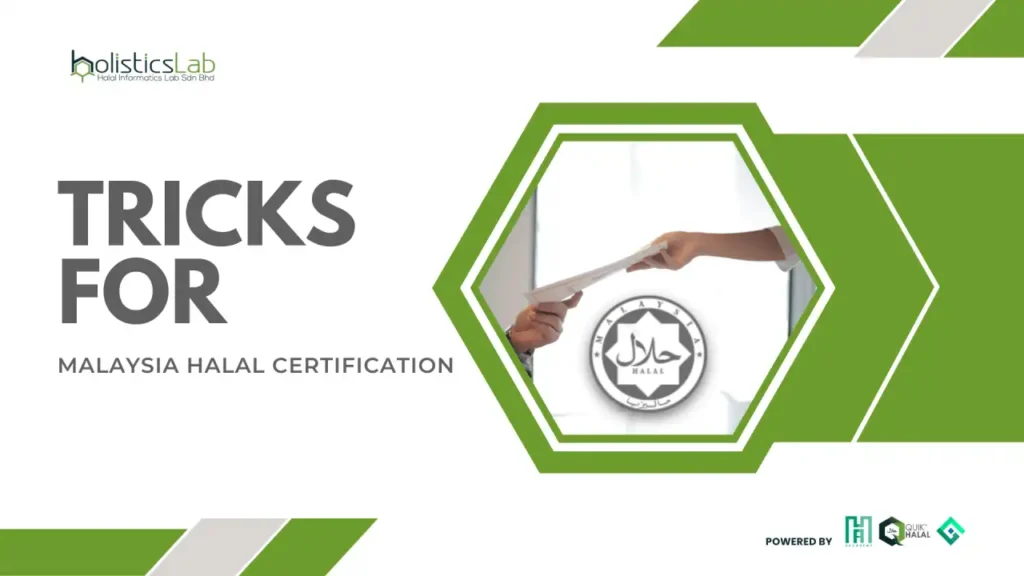Several considerations should be considered by enterprises while preparing for Malaysia Halal certification. The Malaysia Halal Certification procedure is governed by the Malaysian Department of Islamic Development (JAKIM) and entails satisfying particular conditions. The following are the most important variables to consider:
Halal Prerequisites
Learn about the Halal standards established by JAKIM. Understanding Halal principles, forbidden chemicals, allowed methods, and other criteria linked to the manufacturing, storage, and handling of Halal products is all part of this.
Halal Assurance System
Create a strong Halal Assurance System (HAS) inside your firm. This system should include all parts of the manufacturing process, including raw material procurement, manufacture, packaging, storage, transportation, and distribution. It should keep halal and non-halal items separate and avoid cross-contamination.
Halal Training and Education
Give your staff Halal training and education to ensure they understand Halal regulations and their roles in ensuring Halal integrity. This covers instruction on Halal practices, hygiene, and cleanliness, as well as the need for Halal certification.
Verification of Ingredients and Suppliers
Check the Halal status of your ingredients and suppliers thoroughly. Ensure that all ingredients used in the manufacture of Halal Goods are Halal-certified. Maintain the correct documentation and Halal certificate records for all of your vendors.
Production Plant
Ascertain that your manufacturing facility complies with Halal regulations. Maintaining cleanliness, preventing cross-contamination, and following correct sanitation practices are all part of this. Separate manufacturing lines or regions for Halal and non-halal items may be required.
Documentation and record keeping
Maintain detailed documentation and records of all Halal production processes and procedures. Ingredient specifications, production techniques, cleaning and sanitation procedures, pest control, and maintenance records are all included. During the certification procedure, these records will be evaluated.
Application for Halal Certification
Submit a comprehensive and correct Halal certification application to JAKIM. Provide all relevant papers and information, such as your Halal Assurance System, production methods, ingredient specifics, and supporting documentation.
Halal Audit
Prepare for a Halal audit performed by JAKIM or its authorised agents. The audit will include a thorough visit to your manufacturing facilities, a review of paperwork, interviews, and sample testing. Participate completely in the audit and rectify any non-compliance concerns as soon as possible.
Malaysian Standards Compliance
Ensure that your goods meet Malaysian standards, such as Malaysian Standard MS 1500:2009 – Halal Food – Production, Preparation, Handling, and Storage – General Guidelines.
Continuous Monitoring and Improvement
Once certified, set up frequent monitoring and review methods to assure continuous Halal compliance. Improve your Halal Assurance System on a continuous basis based on feedback from audits, consumer feedback, and industry advancements.
Businesses may boost their chances of acquiring Malaysia Halal certification for their goods by considering these considerations and according to the rules established by JAKIM.
This trick may require strenuous efforts for those interested in applying for Malaysia Halal Certification, but we, at HOLISTICS Lab Sdn Bhd, as Halal Consultants, believe industry players should seize the opportunity by having Halal Certification for their products and services as it will provide a good return on investment.
To achieve the mission of industry players in adaptability to Halal, HOLISTICS Lab came out with a helpful ecosystem called Halal Advising & Monitoring (HAMS) that aims to help applicants for Malaysia Halal Certification. Any information, kindly reach us at https://bit.ly/adminholisticslab


